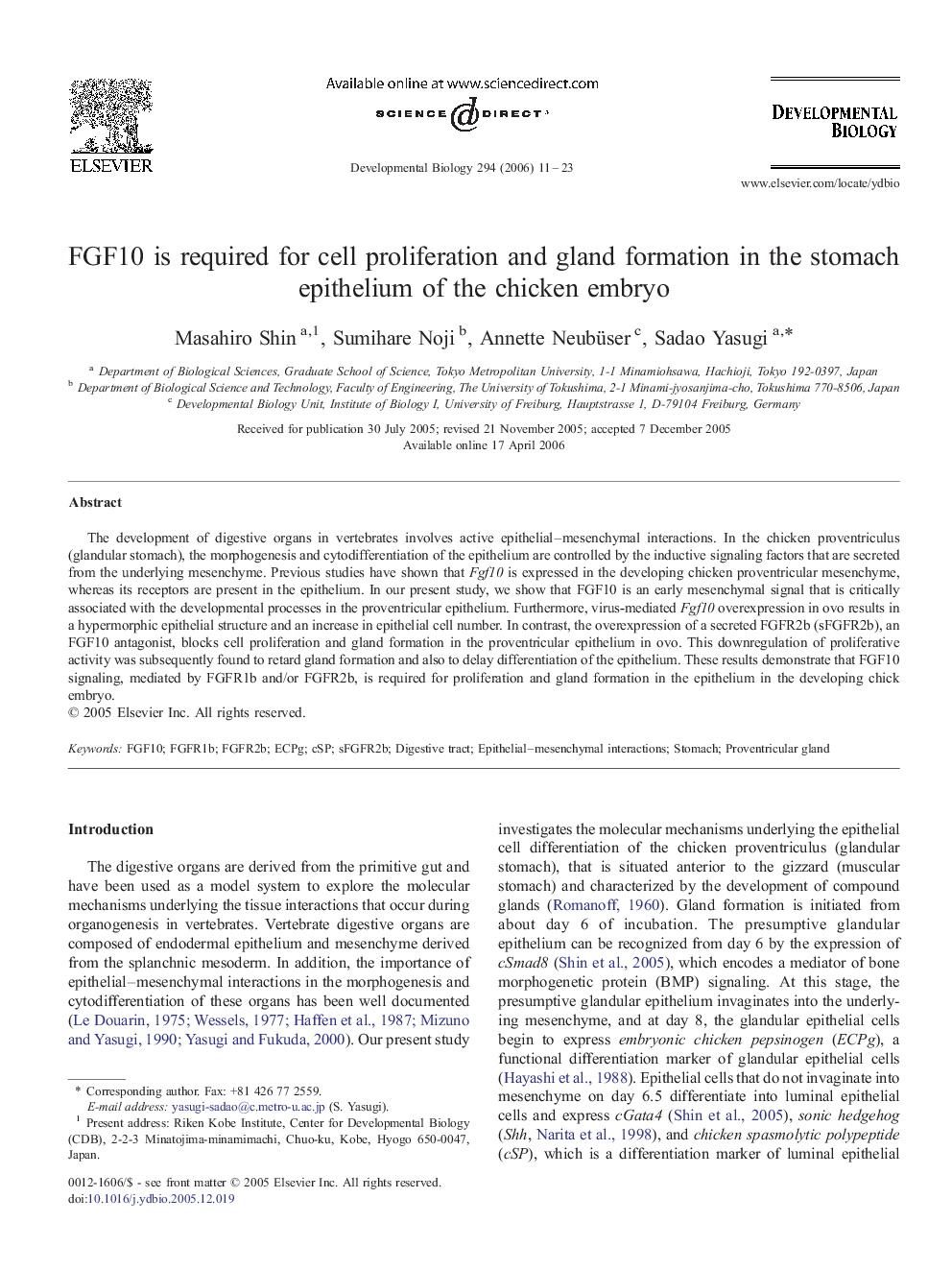| Article ID | Journal | Published Year | Pages | File Type |
|---|---|---|---|---|
| 2176110 | Developmental Biology | 2006 | 13 Pages |
The development of digestive organs in vertebrates involves active epithelial–mesenchymal interactions. In the chicken proventriculus (glandular stomach), the morphogenesis and cytodifferentiation of the epithelium are controlled by the inductive signaling factors that are secreted from the underlying mesenchyme. Previous studies have shown that Fgf10 is expressed in the developing chicken proventricular mesenchyme, whereas its receptors are present in the epithelium. In our present study, we show that FGF10 is an early mesenchymal signal that is critically associated with the developmental processes in the proventricular epithelium. Furthermore, virus-mediated Fgf10 overexpression in ovo results in a hypermorphic epithelial structure and an increase in epithelial cell number. In contrast, the overexpression of a secreted FGFR2b (sFGFR2b), an FGF10 antagonist, blocks cell proliferation and gland formation in the proventricular epithelium in ovo. This downregulation of proliferative activity was subsequently found to retard gland formation and also to delay differentiation of the epithelium. These results demonstrate that FGF10 signaling, mediated by FGFR1b and/or FGFR2b, is required for proliferation and gland formation in the epithelium in the developing chick embryo.
